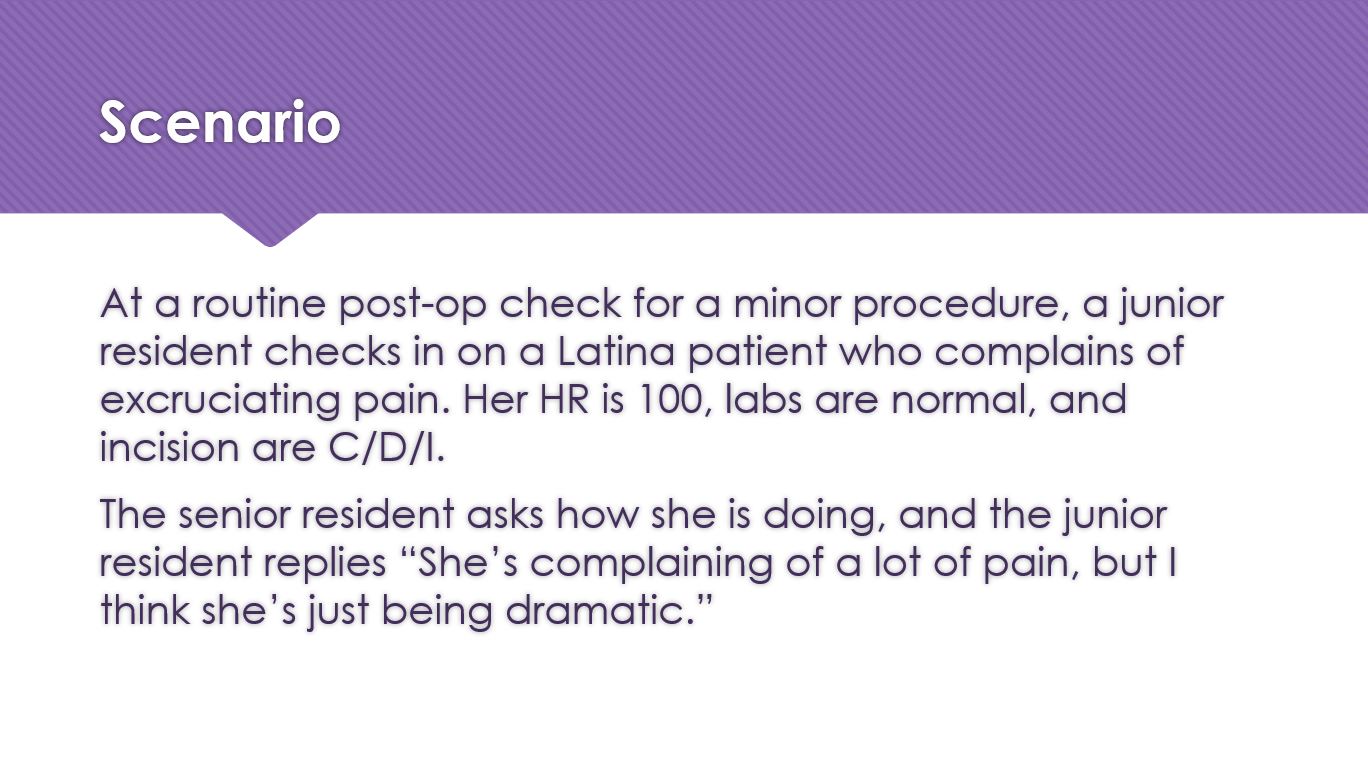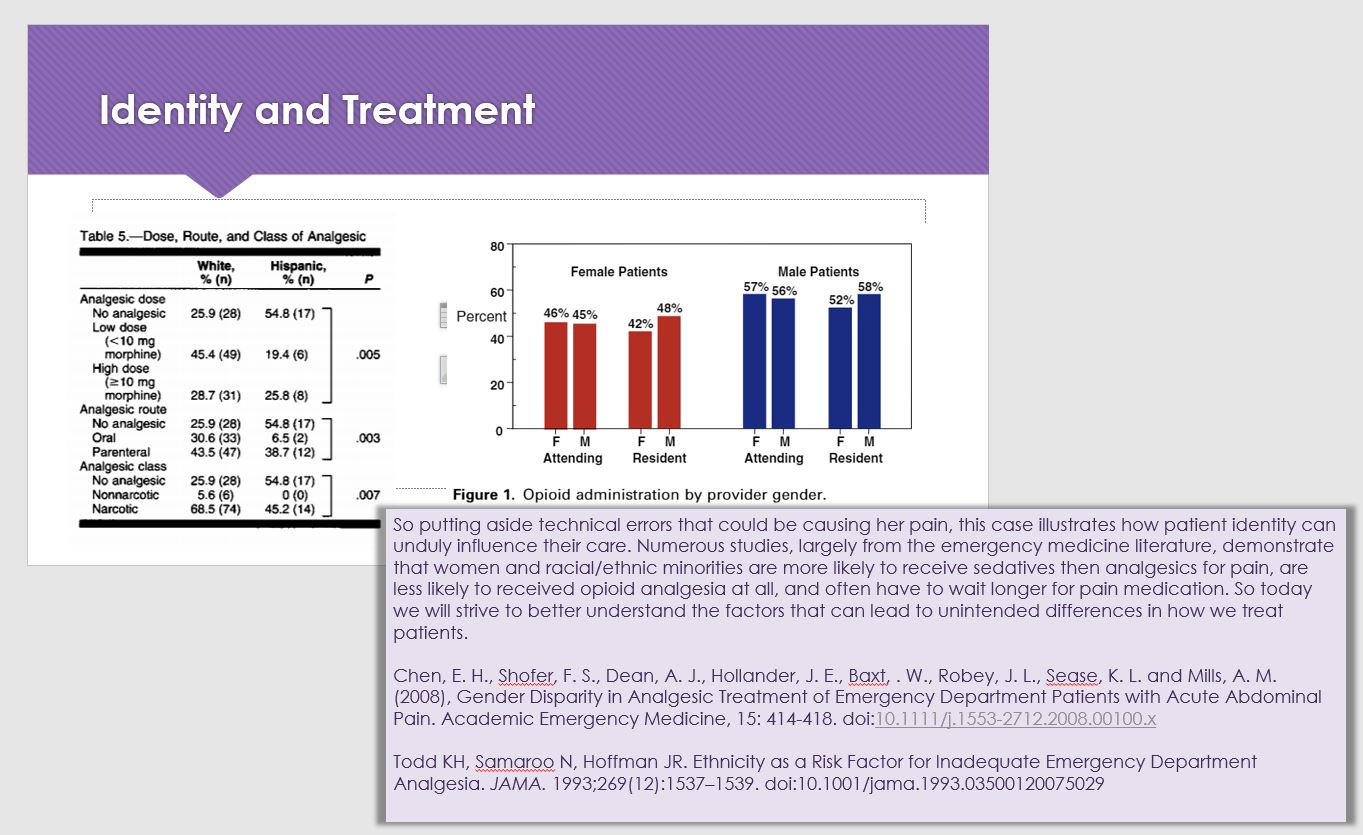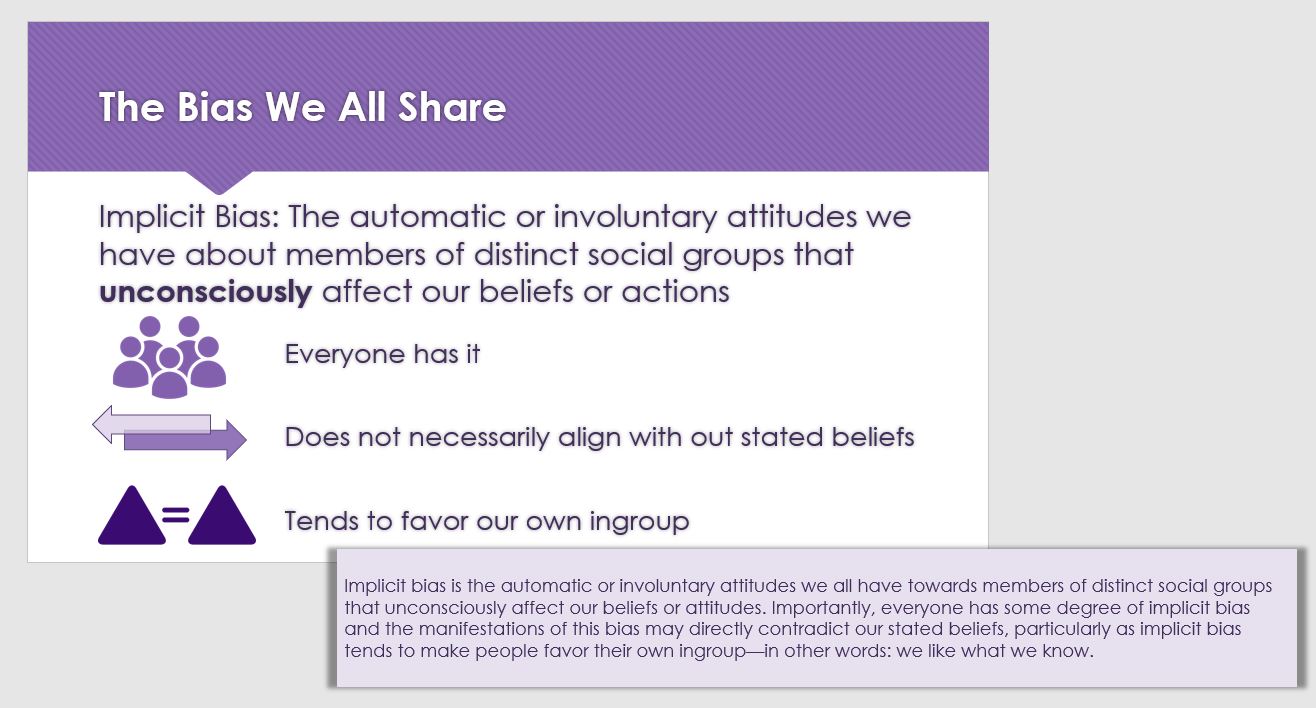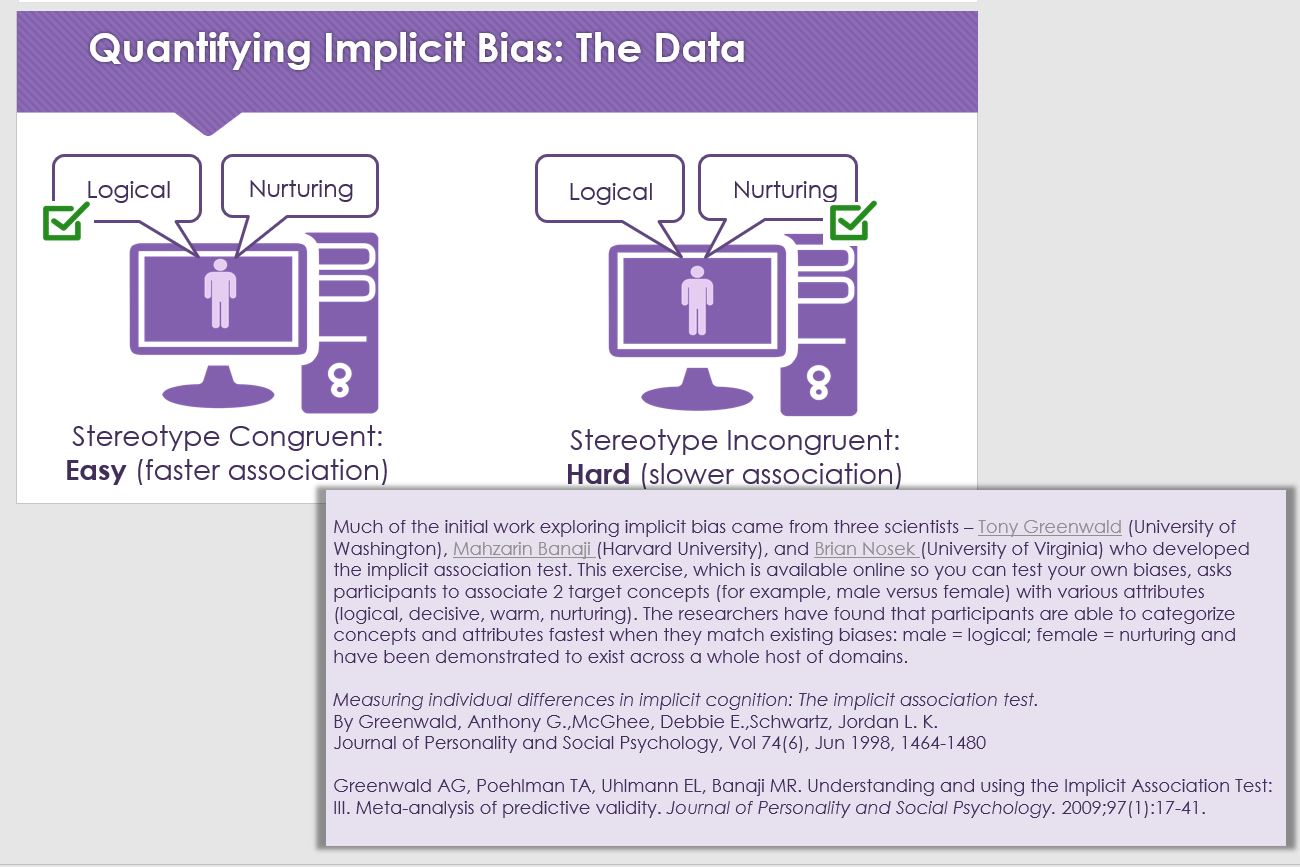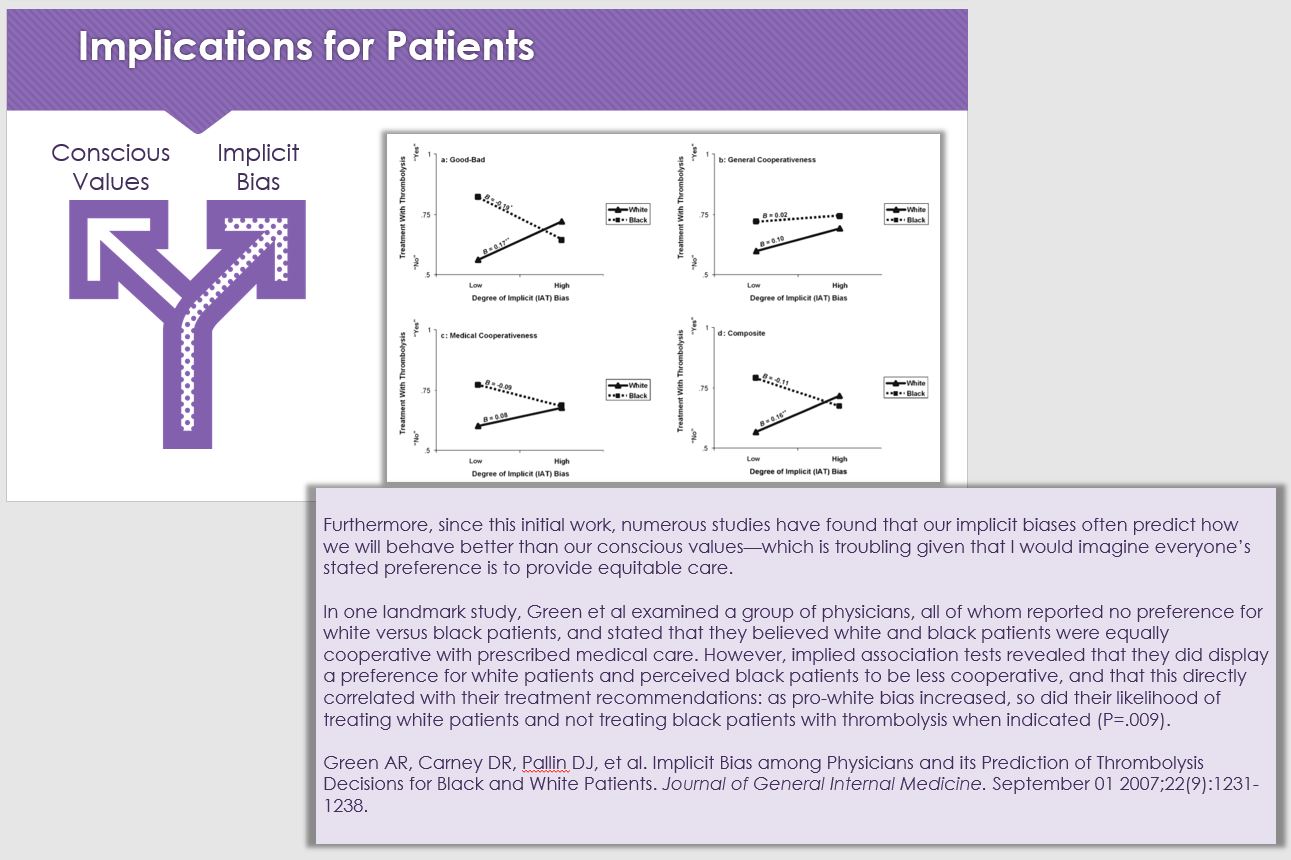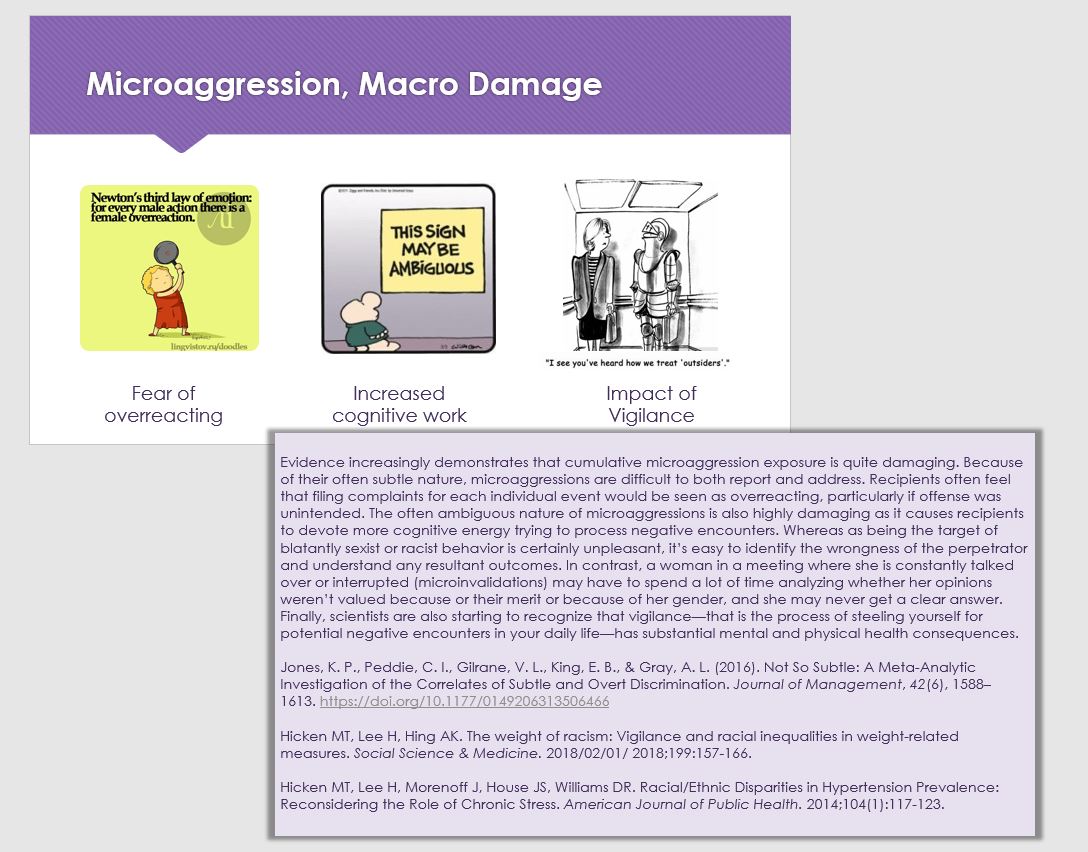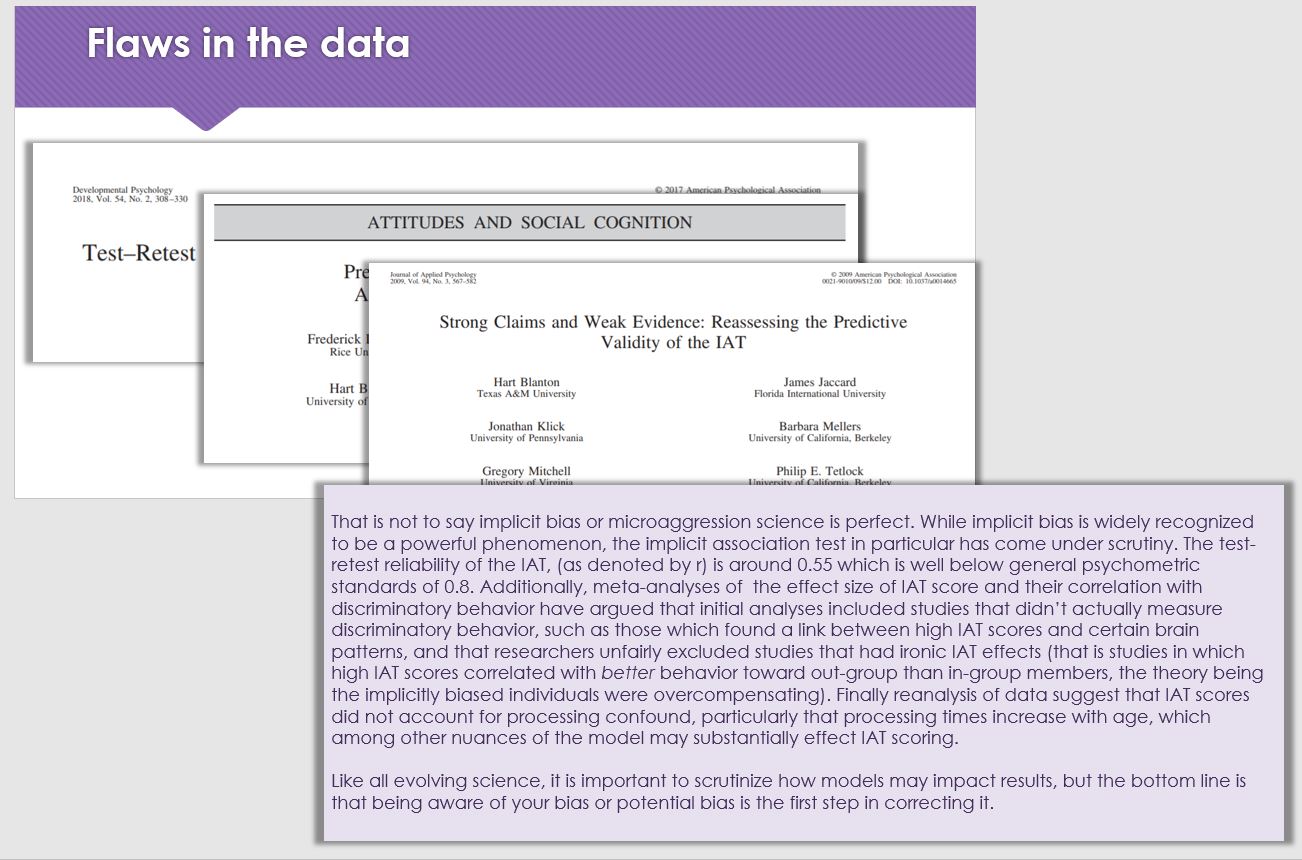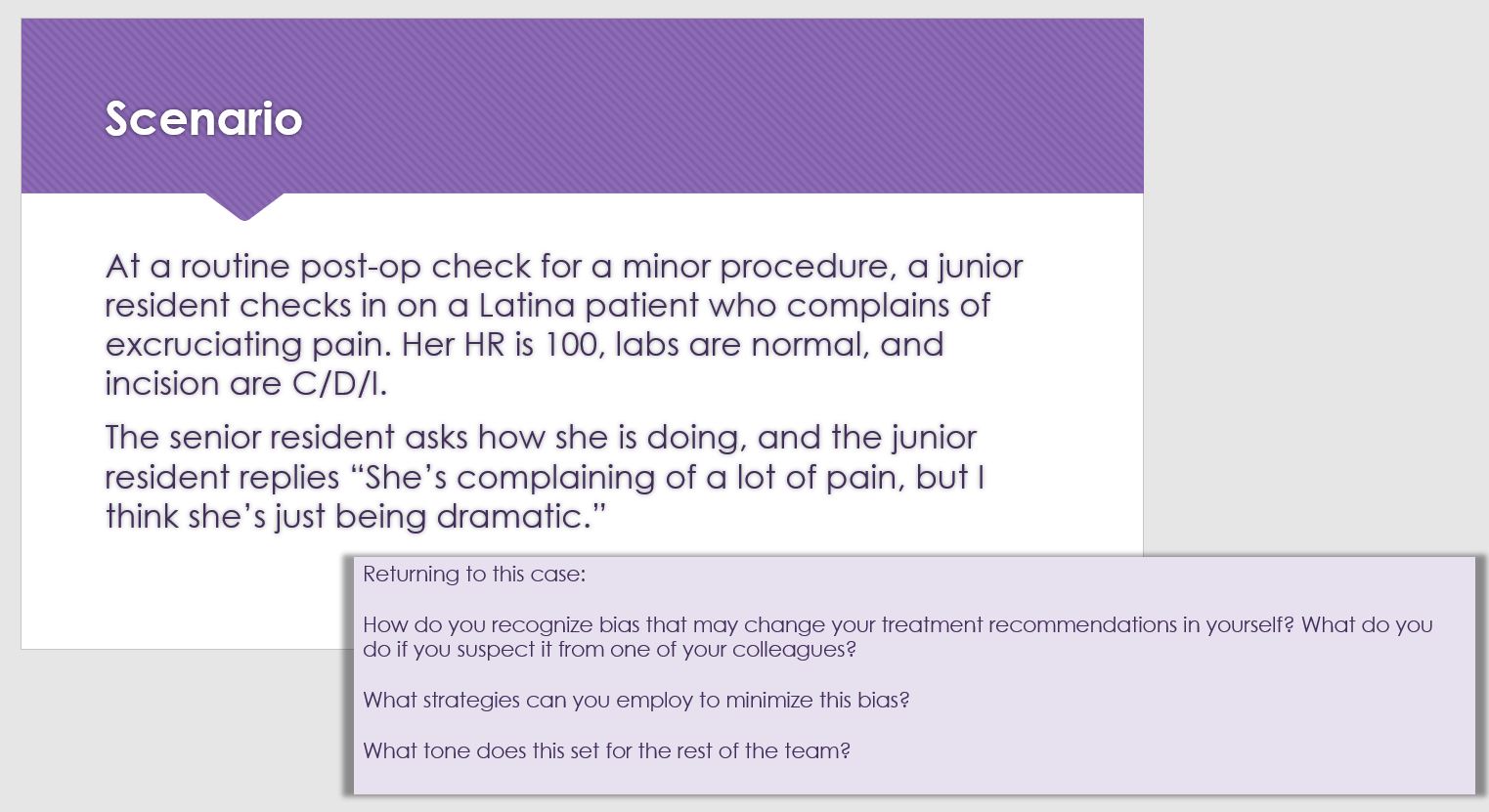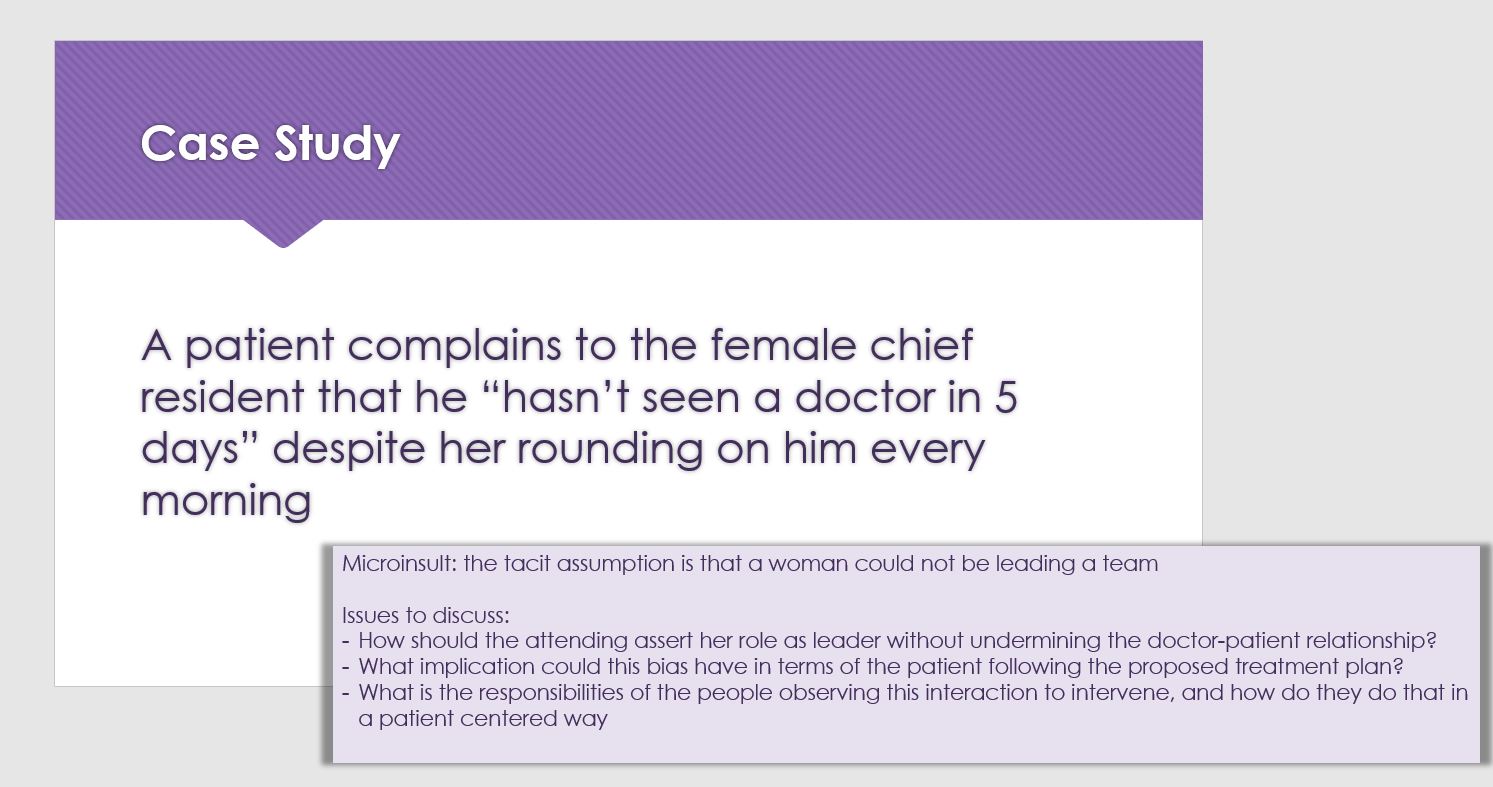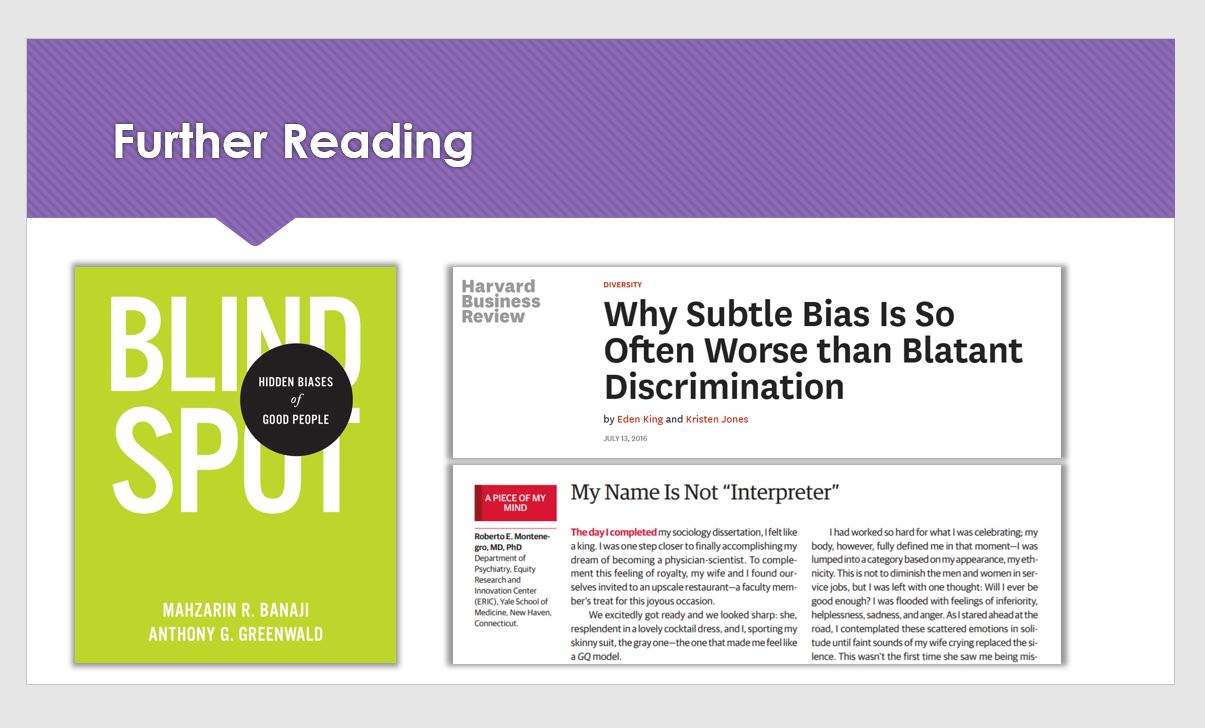Cultural Complications Curriculum
Call to Action
Every day, patients, physicians, and staff are forced to contend with bias in the hospital environment. Although the negative effects of this exposure are increasingly recognized, how to combat it is not well established. Existing zero-tolerance harassment policies often focus more on punishment than education, and are not always suited to address the nuances of the patient-doctor relationship or subtle instances of discrimination.
We created a Cultural Complications Curriculum to address this deficit. Designed to be presented during standard hospital Morbidity & Mortality conferences, the curriculum covers 12 core themes in Diversity, Equity, and Inclusion. Each data-driven module introduces the audience to key terminology, provides scientific evidence for the concept, and offers sample cases to spur discussion. By leveraging a longitudinal approach that is already familiar to health care workers, we hope to better identify instances of cultural breakdown and establish best practices to address it.
study coordinators
Chelsea Harris, MD, MS
Dr. Harris is an Assistant Professor of Plastic Surgery at the University of Utah
Lesly Dossett, MD, MPH
Dr. Dossett is a Professor of Surgical Oncology at the University of Michigan
Justin Dimick, MD, MPH
Dr. Dimick is the Frederick A. Coller Distinguished Professor of Surgery and Chair of the Department of Surgery at the University of Michigan
Our Curriculum
20 Minutes, Once a Month
This curriculum is entirely scripted to enable newcomers to deliver it with minimal background preparation (though of course additional reading is always encouraged!). Each module begins with a 5-10 minute didactic session that introduces terminology and then quickly introduces scientific evidence supporting the topic.
Each module also includes a selection of sample cases and discussion prompts designed to operationalize the topic and build best practices around instances of cultural breakdown. However, institutions are welcome to substitute site-specific cases to better address their unique challenges.
Longitudinal, Data-Driven
The curriculum purposely avoids a social-justice or moralistic approach, but focuses instead on data demonstrating how each topic influences patient care or hospital culture. Additionally, every session includes a slide specifically highlighting scientific flaws or instances where the concept may break down. Furthermore, although each module can stand on its own, the curriculum is designed to build on itself from foundational concepts like implicit bias, to how this manifests in promotion or national representation.
Sample Module
ReQuest the Curriculum
We are actively in the process of refining and improving the curriculum. Thus, we ask that if you are interested in beginning this initiative, you also identify a team member to participate in our survey evaluating the curriculum. Each module contains a QR code and a link to our survey. All data is de-identified and stored on password protected servers. This study will be used for educational purposes only and has been approved the the University of Maryland IRB [number here]
Contact Info
If you have any questions please contact our group email: CulturalComplications@gmail.com
"[this initiative] makes me want to redo my residency”
-Dr. Shirin Towfigh

